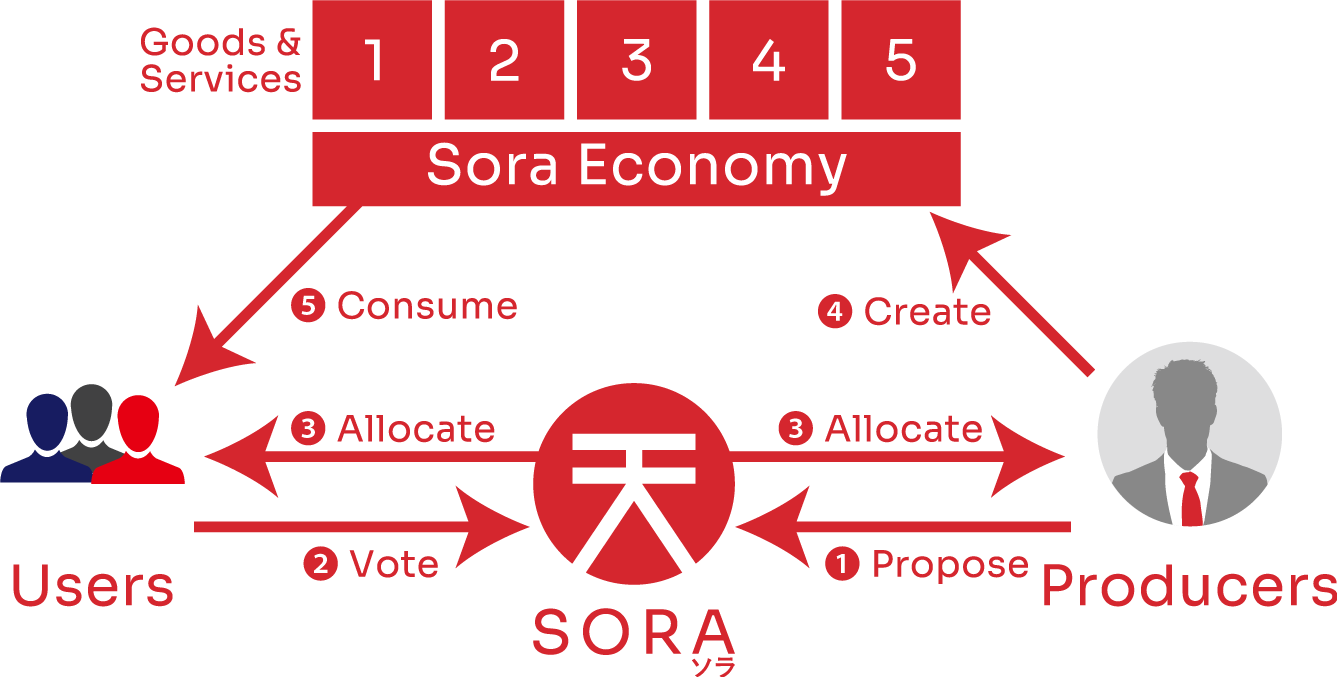Sora | ソラ
In August of 2017, the executive team of Soramitsu met in Japan in the mountains near Aizu, Fukushima Prefecture, and decided to embark on a new endeavor to apply the advanced blockchain technology that we had developed in Hyperledger Iroha to create a decentralized economic system. As those in crypto at the time may recall, the industry was in the midst of an exciting boom where many new ideas and projects were coming forth daily. However, the vast majority of these projects, if not all, had awful economic models and it was obvious to us that something had to be done to create a decentralized, yet rational, economic system.
At the time, we never would have imagined that we would be embarking on a 2+ year journey spanning multiple continents and pushing the bounds of our technology and engineering prowess even farther. Yet, that is exactly what we did, establishing a company in Switzerland to oversea this effort and working with regulators to obtain approval to create Sora: the world's first decentralized autonomous economy.
Bitcoin was proposed by Satoshi Nakamoto in 2008, as the world's first currency created and maintained by no central authority. Instead of a central issuer and maintainer, anyone can join the Bitcoin network and help to maintain the global Bitcoin ledger. Notably, Bitcoin takes the philosophical approach that no rational monetary policy is needed and instead there should be long-term inflation of the monetary base. As Nakamoto writes, a "central bank must be trusted not to debase the currency, but the history of fiat currencies is full of breaches of that trust." In place of a mechanism for rationally adjusting monetary policy, Nakamoto created a steadily declining, short term inflationary model that mints new bitcoins as rewards for mining blocks, with an arbitrarily chosen upper limit of 21 million bitcoins. While a limit on the overall amount of currency created can avoid the moral hazard of debasement, it also limits the theoretical practicality of bitcoin as a currency, as long term it is deflationary in nature (due to lost or "burned" bitcoins), which can cause the Bitcoin economy to experience deficits in economic growth.
Instead, a decentralized economy should autonomously adjust itself to adapt to the complexities of a changing world. To have a sustainable economic system, more than just a payment currency is required; a rational monetary policy to control the creation of new purchasing power in an economy is needed. To prevent moral hazards associated with centralized control of value creation, a decentralized solution is desirable. Sora democratizes the distribution of newly created tokens by creating a decentralized autonomous economy (DAE). The Sora DAE is an economic system based around tokens on a blockchain platform, where projects (i.e., new goods and services) are proposed to receive an allocation of newly created tokens and a voting system is used to decide which projects to allocate newly created tokens to.

The goal of the Sora DAE is to promote the production of new goods and services that will use XOR (the token of the Sora DAE) as a utility token to power the goods and services. To choose which goods and services, out of many possible, to empower with an allocation of newly minted XOR, we created a mobile app (open sourced it as well!) called Sora. It allows users to scroll through proposed projects and vote for them. Each vote can be used to create 1 SDR worth of XOR, if the vote succeeds. These XOR are then given to the project producer in order to grow the production of the Sora economy.

Our 2+ year journey of creating the initial system is now over and it is time for the community to start to take over the project. The type of decentralized economy that is created is up to you, the user, to decide! Please make your choices carefully. Install our app to get started now.